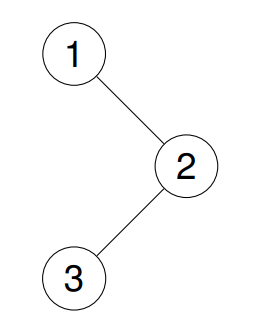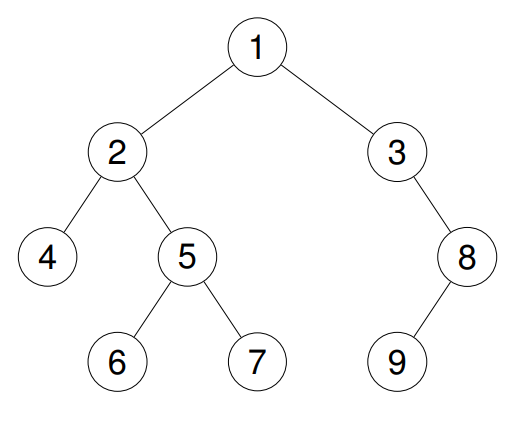Given the root of a binary tree, return the preorder traversal of its nodes' values.
Example 1:
Input: root = [1,null,2,3]
Output: [1,2,3]
Explanation:

Example 2:
Input: root = [1,2,3,4,5,null,8,null,null,6,7,9]
Output: [1,2,4,5,6,7,3,8,9]
Explanation:

Example 3:
Input: root = []
Output: []
Example 4:
Input: root = [1]
Output: [1]
Constraints:
- The number of nodes in the tree is in the range
[0, 100]. -100 <= Node.val <= 100
Follow up: Recursive solution is trivial, could you do it iteratively?
A:
-------------------- Recursive way. ------------
/**
* Definition for a binary tree node.
* struct TreeNode {
* int val;
* TreeNode *left;
* TreeNode *right;
* TreeNode() : val(0), left(nullptr), right(nullptr) {}
* TreeNode(int x) : val(x), left(nullptr), right(nullptr) {}
* TreeNode(int x, TreeNode *left, TreeNode *right) : val(x), left(left), right(right) {}
* };
*/
class Solution {
public:
vector<int> preorderTraversal(TreeNode* root) {
vector<int> res;
helper(root, res);
return res;
}
private:
void helper(TreeNode* root, vector<int>& res) {
if (!root)
return;
res.push_back(root->val);
helper(root->left, res);
helper(root->right, res);
}
};
-----------------Iterative way ---------------
simply use a stack to push right and left, and print the current node
Mistakes:
1: 要注意, 先往stack里加右子树,再加左子树。
2: 这次忘了先check root == nullptr
/*** Definition for a binary tree node.* struct TreeNode {* int val;* TreeNode *left;* TreeNode *right;* TreeNode() : val(0), left(nullptr), right(nullptr) {}* TreeNode(int x) : val(x), left(nullptr), right(nullptr) {}* TreeNode(int x, TreeNode *left, TreeNode *right) : val(x), left(left), right(right) {}* };*/class Solution {public:vector<int> preorderTraversal(TreeNode* root) {vector<int> res;stack<TreeNode*> S;if (root)S.push(root);while (!S.empty()) {auto tmp = S.top();S.pop();res.push_back(tmp->val);if (tmp->right) {S.push(tmp->right);}if (tmp->left) {S.push(tmp->left);}}return res;}};
Mistakes:
1: 要注意, 先往stack里加右子树,再加左子树。
2: 这次忘了先check root == nullptr
No comments:
Post a Comment